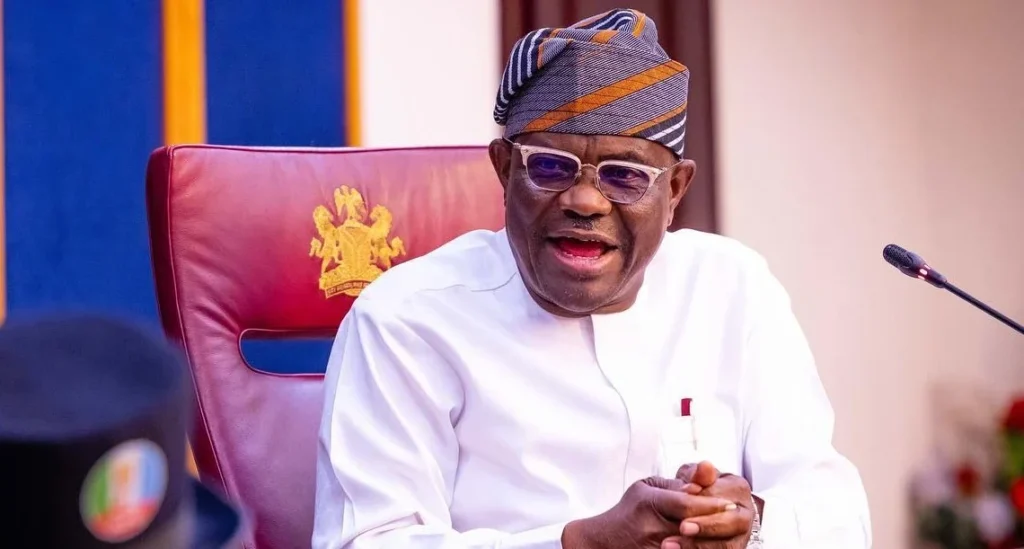Minister of the Federal Capital Territory (FCT), Nyesom Wike, has reacted to recent defections from the Peoples Democratic Party (PDP) to the ruling All Progressives Congress (APC), saying those who once accused him of destabilising the PDP have now joined the party they claimed he supported.
Wike made the remarks on Wednesday at the flag-off ceremony for the construction of the main carriageways of the Outer Southern Expressway (OSEX) from Ring Road I Junction to Ring Road II Junction along Wasa Road, near Shoprite Junction in the Apo area of Abuja.
Speaking on the growing list of defectors from the PDP to the APC, Wike said their actions vindicate him, noting that those who criticised his loyalty are now openly aligning with President Bola Tinubu’s administration.
“I have been watching on daily televisions and social media people who said I want to destabilise the party. I’m working for APC, and all of them are now in APC,” Wike said.
“So, they should commend me for working for where they are heading to. I should be commended for doing a good job for them,” he added.
The former Rivers State governor, who has been a central figure in the internal crisis within the PDP in recent years, noted that political cooperation across party lines in support of Tinubu’s government is now more common than ever.
“It has never been like this before — whichever party you belong to, all of them have always worked together to support this administration,” Wike stated.
His comments come in the wake of high-profile defections, including those of Enugu State Governor Peter Mbah and former PDP National Youth Leader, Sunday Udeh-Okoye, who recently joined the APC.
Udeh-Okoye, speaking on Channels Television’s Politics Today, said the South-East region had found a political “home” in the APC. Notably, Udeh-Okoye had previously competed for the PDP National Secretary position against Samuel Anyanwu, a known ally of Wike.
As political realignments continue across party lines ahead of the 2027 elections, Wike’s remarks reflect both the shifting alliances in Nigerian politics and his continued influence within the nation’s power structure.



